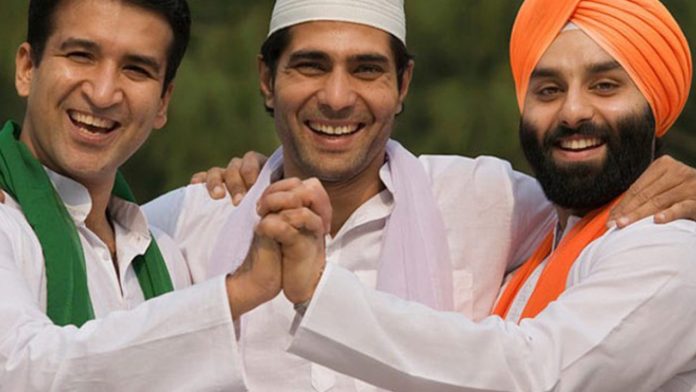– Mohd. Naushad Khan
As the month of Ramadan comes to a close, Muslims around the world gather to celebrate Eid al-Fitr. In India, Eid al-Fitr is a significant festival that not only brings together Muslims but also fosters a sense of unity and solidarity among people of different faiths, particularly Hindus and Muslims.
Eid al-Fitr is a celebration of the values of compassion, generosity, and kindness that are inherent to the Islamic faith. As Muslims gather to offer prayers, exchange gifts, and share meals with family and friends, they are also reminded of the importance of building bridges with people of other faiths. In India, where Hindus and Muslims have coexisted for centuries, Eid al-Fitr is an opportunity for people of different faiths to come together and celebrate their shared humanity. In many parts of India, Hindus and Muslims have traditionally come together to celebrate Eid. In some villages, Hindus and Muslims share meals and exchange gifts on Eid, while in others they participate in joint cultural programmes and festivities. This spirit of unity and solidarity is a testament to the deep bonds of friendship and brotherhood that exist between Hindus and Muslims in India.
Eid al-Fitr is also an occasion for Hindus and Muslims to break down barriers and build new relationships. In many cities, Hindus and Muslims come together to participate in Eid celebrations, which helps to foster greater understanding and mutual respect between the two communities. This, in turn, helps to break down stereotypes and build bridges of friendship and cooperation. As the world deals with the challenges of conflict, violence, and extremism, Eid al-Fitr offers a powerful message of peace, harmony, and coexistence. By celebrating Eid together, Hindus and Muslims in India are sending a powerful message that people of different faiths can live together in peace, harmony, and mutual respect.
Senior journalist Dr. Abhay Kumar highlights the inclusive nature of festivals in our society, which are celebrated by all, regardless of religious affiliation. He has expressed deep concern over a segment of hardliners attempting to divide festivals along religious lines and communalise public religious spaces. Dr. Kumar, whose research focuses on minority rights and social justice, asserts that religious faith is a personal matter, while the celebration of festivals and the organisation of religious events are social activities that thrive on the equal participation of all sections of society.
Sharing his personal experience, Dr. Kumar emphasised how Eid has always been a special day for him. Recalling his days at The Qaumi Tanzeem, a leading Urdu daily in Patna where he worked as a journalist, he mentioned that almost every day during the month of Ramadan, he would share iftar with his colleagues. His religious identity was never seen as a barrier, and he was always excited to take part in the evening iftar. Eid was especially meaningful for him, as both he and other Muslim staff members received Eidi, a small amount of cash given as a token gift from seniors to juniors.
On Eid, Dr. Kumar was often invited to his editor’s home for a feast, where Editors Ashraf Fareed and the late Ajmal Fareed would personally serve him food. Another senior editor, Khurshid Hashmi – who passed away during the COVID-19 pandemic – would always invite him to his home for lunch on Eid. These cherished memories are engraved in Dr. Kumar’s heart and mind, and when he reflects on them, he sees the absurdity of the divisive politics surrounding festivals and the vilification of minority communities.
“I felicitate my friends on Eid al-Fitr as we have done in India for more than a thousand years and more. We reflect on Eid al-Fitr as a culmination of devoting the days of Ramadan fasting to renewal of our lives by the Grace of God. It is a happy coincidence that for some years, Ramadan has coincided with the Christian time of 40 days of Lent, also devoted to fasting and prayers as a form of renewal of body and soul. For us this would involve prayers for repentance and forgiveness of wrongs that we may have done to others in our life. In the context of India, all I can pray for is peace between communities, and an end to this suffocating hate that is so rampant in our atmosphere,” said John Dayal.
“Heartiest greetings to Muslim brethren on Eid al-Fitr. I hope and pray that the holy festival unites the Muslim world to fight for their legitimate rights with more vigour and dedication. Testing times are ahead. We need to bring all minorities and civil society on one platform to wage a battle for civil, economic and political rights. The time is today. Tomorrow will be too late,” said Jagmohan Singh, Convenor, Sikh Personal Law Board.
Eid al-Fitr is a joyous occasion that celebrates the values of compassion, generosity, and kindness. In India, it is also a celebration of Hindu-Muslim unity, which is a powerful testament to the deep bonds of friendship and brotherhood that exist between people of different faiths. As we celebrate Eid al-Fitr, let’s remember the importance of building bridges of friendship and cooperation between people of different faiths, and let’s work towards creating a world that is more just, peaceful, and harmonious.




